UNIT 1
DEFINITION AND BASIC CONCEPTS
GOODS
A thing which can satisfy some of human desires is called a good or commodity. For example water, book and computers etc. Following are the important properties of goods.
(i) Able to satisfy some of human desire
(ii) Commands a price in market
(iii) Transferable
If any good just satisfies some of human desires but does not command a price then it is called a free good or non-economic good, whereas if a good satisfies some of human desires as well as commands price, it is called an economic good. In economics we only study economic goods. Therefore in economics “Good” always means economic good.
SERVICES
Intangible goods which satisfy some of human desires and command price are called services. These are usually consumed at the point of production and are non-transferable. Education, health care etc.
WEALTH
Generally speaking the wealth is a combined name for “goods and services”. It also refers to physical and financial assets which can generate income.
WANTS
“Wants” are effective desires. The term desire means wish for something whereas the term “wants” means those desires which people wish to satisfy. Therefore wants or ends means the amount of economic goods and services which people wish to get.
Wants have following four characteristics
a. Unlimited……There is no limit of human wants.
b. Recurring……. They appear again and again.
c. Difference in importance… All wants are not equally important, some are more urgent and some can be postponed.
d. Can be satisfied from alternative means.
RESOURCES
Means to produce goods and services or means to satisfy human wants are called resources. There are four types of resources used in production which are also called factors of production.
i. Land or Natural resources
ii. Labour or skills and abilities of human being
iii. Capital or Man made goods which are used in further production
iv. Entrepreneurship or Organization means a person or group of persons who combined the other three factors of production, start the production process and as a result of it earns profit or bears losses.
SCARCITY OF RESOURCES
Some thing is scarce if its quantity demanded at a zero price is greater than its available supply. All economic goods are scarce.
Resources are also said to be scarce because these are not sufficient to fulfill all human wants.
MEANING OF ECONOMIC PROBLEM AND CHOICE
The human problem which arises due to multiplicity of wants and scarcity of resources is called “economic problem”. Due to economic problem people have to make choices between less urgent and the most urgent wants and the rationale behaviour of the people is that they try to satisfy the most urgent wants first and the less urgent wants afterwards and least urgent wants can be postponed or abandoned.
One of the most important concepts of cost in economics is opportunity cost. This concept is useful for the individuals as well as for the economy as a whole because it is concerned with the allocation of scarce resources. The opportunity cost of one action is the value of the best alternative opportunity given up.
“It can be defined as the cost of one thing measured in terms of alternative given up.” We can explain it by the following example. A person who has Rs. 10000 wants to buy a computer and two tables but he can either buy computer or tables, suppose he decides to buy computer, then opportunity cost of buying computer is two table that he gave up. The concept of opportunity cost is very important in economics. It is useful for consumers, producers and investors. While making the decision of investment in alternative projects one has to consider the opportunity cost of each project. And the project will be considered for investment which has lower opportunity cost or benefit given up is small. Similarly when we buy goods and services, we keep in mind the opportunity costs of various goods and services purchased. On Macro level when govt. plans its development projects it chooses between alternative opportunities, it opts for the best opportunity.
SHADOW PRICES
It is a price which is attributed to the true marginal value of a good or opportunity cost of a resource, and which may differ from the market price. For example if a worker earns Rs.1000 from a particular job, but if unemployed no alternative job is available to him, and will command no price. In this case market price of the labour is 1000 but shadow price is Zero. On the other hand if some natural stream is used for drainage of waste water for free means zero market price. On the other hand if this facility is purchased from Municipality at Rs 1000/- then opportunity cost will be 1000 where market price is Zero.
FULL EMPLOYMENT
In broader meaning full employment in an economy exists when all the economic resources are fully utilized. Whereas in simple words, If all the labour force in a country is employed it is called full employment.
PRODUCTION
The term production means production of wealth. It can be defined as the process of adding value and utility to something. In simple words, production means producing of goods and services.
PRODUCTION FUNCTION
The physical relationship between the output of a good and the inputs (factors of production) required to produce that good is called production function. It is written as
Q = f(L,K)
Where Q is output, L is labour and K is capital
MICRO AND MACRO ECONOMICS
There are two methods for economic analysis or we can say that there are two main branches of the subject of economics
(1) Micro economics (2) Macro economics
These two approaches for the study of economics have much theoretical importance and are discussed as under.
MICRO ECONOMICS
“Micro economics is that branch of economics which studies the component of economy.”
In micro economics we study individual units like the individual consumer, the individual producer, a particular household or a particular firm. In micro economics we discuss that how a particular producer can maximize his profit or minimize his cost, or how an individual consumer maximizes his satisfaction. In micro economics we also discuss concepts like demand and supply and the determination of equilibrium price and quantity in the market. All this is the subject matter of micro economics. In micro studies we take up a particular quantity and separate it from other economic quantities and then we study it individually. In micro economic study we assume that the behavior of the variable under study is not affected by the behavior of other economic variables. For example in determination of market equilibrium, we only discuss changes in demand and supply due to changes in price, whereas all other variables are considered constant.
Importance of Micro Economics
Following is the importance of micro economics
(i) Price Mechanism
Micro economics helps us to understand the concepts of demand and supply and then their role in determination of prices in free market economy.
(ii) Consumer Behaviour
Consumer behaviour is the most important topic of micro economics. The study of consumer behaviour is very important as it helps us to understand that how a consumer can maximize satisfaction from given expenditures.
(iii) Different Market Situations
Micro economic study is very useful in understanding the existence and working of different types of markets. For example, perfect competition, Monopoly, monopolistic competition etc. This study is very important from the view point of consumers and producers.
(iv) Optimum Use of Resource
Micro economics also studies the mechanism of employing the optimum combination of scarce resources, therefore it helps us to discuss and understand the process of allocating scarce resources efficiently.
(v) Profit Maximization
The Main objective of each firm is to earn maximize profit. The micro economic study helps us understand how prices of goods and output of firms are determined under different market situations. Micro economic theory also guides a firm for maximization of profits.
MACRO ECONOMICS
“Macro economic is that branch of economics which studies the economy as a whole.”
In macro economics, instead of studying the income or employment or production related to a particular firm, we study the aggregates like total national income, total employment or total production in the country. In the words of Boulding, "Macro economics does not deal with the individual quantities as such, but with the aggregate of these quantities, not with individual income, but with national income, not with individual prices but with general price level, not with individual output, but with the national output."
Importance of Macro Economics
In recent years, macro economics has gained much popularity in the field of economic studies. Following are the main reasons for this popularity and importance of macro economics
(i) Policy Formulations
Macro economic studies are necessary for the formulation, implementation or execution of national economic policies. The government must posses an adequate knowledge of the behavior of economic aggregates such as total national income, total consumption, total savings and investment. An accurate and reliable information of these various aggregates is an essential pre-requisite of any sound economic policy.
(ii) Economic Conditions
Macro economic study helps us to understand the situation of economy. The performance of different sectors of economy and relative shares of each factor of production in total national income is only measured by the study of economy as a whole.
(iii) Saving And Investment
The situation of saving and investment in the economy are monitored through the macro economic study of the economy. Saving and investments determine the level of national income in the economy.
(iv) Effect of Changes in Prices
Macro economics studies the situation of price level and its impact on various economic activities. This study helps to minimize the bad side effects of inflation and deflation.
(v) Income Distribution
Macro economics studies the determination and estimation of national income. From macro economic analysis of national income relative shares of four factors of production is measured.
(vi) Trade Cycles
Fluctuations in national income and employment with passage of time are called trade cycle. In macro economics, causes of trade cycles are studied and then policies are formulated to overcome the bad effects of trade cycles
(vii) Economic Development
The main objective of all economic policies is to attain a certain level of economic development. In other words improving the living standard of people and reducing poverty is end target of all economic policies. Macro economic study of economy helps us to understand the current situation of economy and suggest appropriate measures for the economic development.
COMPARISON BETWEEN MICRO AND MACRO ECONOMICS
Since economy is composed of interdependent micro units and every economic activity affects the other and is in turn affected by them. Therefore results of micro level study may be misleading at macro level. Thus a correct analysis of any economic activity cannot be made and a true implication cannot be understood except in the context of the economy as a whole.
Now the question arises, which of these two approaches, micro and macro, would be best suited for a scientific understanding of the economic situation. It appears that these two are competitive approaches and we have to select either one of them to analyze a problem. In fact, they are not so competitive, they are interdependent, and neither approach is complete without the other. To understand the functioning of the economy, we have to integrate these approaches in careful manner.
Many writers of the early days defined Economics as “a science of wealth”. Adam smith commonly known as the father of modern economics, defined economics as
"An enquiry into the nature and causes of wealth of nations"
These definitions were defective because they gave much importance to wealth. As wealth is not every thing, it only leads to achieve welfare for humans. Therefore it is man an which is the aim all of the economic activities. Professor Dr. Alfred Marshall was the first economist who gave a logical definition of economics. He defined economics as:
"A study of mankind in ordinary business of life, it examines that part of individual and social actions which is closely related with the attainment and use of material requisites of well being"
CHARACTERISTICS OF DEFINITION:
This definition gave a new direction to the study of economics. Following are the important characteristics of this definition.
1) A Social Science
This definition makes economics a social science. It is a subject that is concerned with the people living in society. According to
2) Study Of Man
Economics is related to man; therefore it is a living subject. It discusses economic problems and behavior of man. According to
3) Wealth As A Means Of Material Well Being
According to
4) Economics And Welfare.
This definition makes economics a welfare oriented subject. We are concerned only with those economic activities which are related to attainment of welfare. Therefore the activities which do not promote material welfare of human beings are out of the scope of economics.
5) Materiality
6) Normative Outlook
According to this definition economics should take care of good and bad aspects of economic activities and therefore involve itself in "what should be and what should not be". This is called normative aspect of economics.
CRITICISM:
Robbins and other many economists severely criticized this definition on following grounds.
1) Limited To Material Welfare
This definition limits the subject of economics to material welfare of people. But the subject of economics is not limited to the study of material welfare of human beings. In reality both material and non material aspects of wellbeing are studies in economics.
2) Vague Concept Of Welfare
The concept of welfare used in this definition is also not clear. The welfare of human beings is not limited to the attainment of material requisites. There are many other factors which affect the human welfare. Further the word "welfare" has different meaning for different persons and different societies. Therefore we cannot define economics using an unclear concept of welfare.
3) Limited Scope
This definition has made the scope of economics limited. Only those activities are studied in economics which are aimed at the attainment of material requisites of well being. Further it ignores the economic activities of a person not living in society. Attainment of non material requisites of human well being fall out of the scope of economics. This division of material and non material aspects of human welfare is not correct.
4) Economics And Welfare
According to Robbins the study of economic activities on the basis of welfare is not good. It is not the duty of an economist to pass verdict that what is conducive to welfare and what is not. Thus according to Robbins "Whatever Economics is concerned with, it is not concerned with the causes of material welfare as such"
5) Moral Judgment
In this definition
6) Unrealistic
This definition appears to be unrealistic as we analyze it critically. The unclear concept of welfare, the division of ends into material and non material, the stress on good and bad, the concept of man living in society etc. All these concepts put unnecessary restrictions and make the scope of economics limited. These ideas make thee definition unrealistic.
CONCLUSION
Although this definition gave a new direction to the subject of economics but it had many weaknesses. Some of the faults of definition are discussed above. For these reasons this definition was replaced by other new definitions of economics.
ROBBINS' DEFINITION
OF ECONOMICS
Robbins was a famous economist. He criticized earlier definitions of economics and gave his own definition. This definition is very popular among the modern economists. In the words of Robbins:
"Economics is the science which studies human behavior as a relationship between multiple ends and scarce resources with alternative uses."
CHARACTERISTICS OF DEFINITION:
The above definition has following four important characteristics:
(1) Ends or wants are unlimited
Human beings have unlimited wants which are recurring. As individuals wish to satisfy all of these wants therefore they struggle hard for it.
(2) Ends or wants have different importance
All human wants are not equally important. Some of the wants are more urgent than the other wants. Only due to the difference of this importance, a consumer is able to make choices.
(3) Resources or means to achieve these ends are limited
This implies that means and ways to satisfy wants are limited as compared to human wants. If our resources to satisfy these wants had been unlimited we would have satisfied all our wants, but this is not so. Many of human wants remain unsatisfied.
(4) Resources can be put to alternative uses
According to this definition resources to satisfy human wants can be put to alternative uses. For example land can be used for the production of wheat or cotton or for the construction of buildings.
When all these four conditions exist together, we say there is an economic problem. This is the problem of choice between competing ends. In fact study of this economic problem is the subject matter of economics.
MERITS OF THE DEFINITION:
Robbins’ definition is superior to other definitions due to following reasons.
(1) Realistic
The concept of limited means and multiple ends are the facts real life. Every individual and society faces this problem. Therefore Robbins’ definition has a realistic view of the economic problem
(2) Precise
This definition is precise and clear. Simply if the means are scarce and wants are unlimited then, there exists an economic problem and study of economic problem is the subject matter of economics.
(3) Scientific
This definition has raised economics to the level of pure science. Every economic problem according to this definition is the problem of scarcity. Further this definition makes no mention of the terms "material requisites" and "well being".
(4) Neutral
This definition does not involve itself into the question of good or bad or bother to decide whether an economic activity does or does not promote individual or social welfare. It is neutral between goodness or badness of economic activities.
(5) Universal
According to this definition, economics studies both the individual and the society; Economics thus becomes a science of universal nature. It is equally applicable to man living in a society or alone away from society. Whenever there is problem of scarcity and choice there is economics.
(6) Wider in Scope.
This definition has widened the scope of economics. Now economics is not limited to only material aspect of life rather it covers non material aspect of human life as well such as education, health, recreation etc.
DEMERITS:
This definition has certain demerits as well, which are following
(1) Economic is not a science
Economic is subject which basically deals with human beings and the behavior of human beings is uncertain. Therefore the principles and laws of economics cannot be as certain as the laws of natural sciences. Thus we can say that economics is not a science as Robbins described it.
(2) Not a positive Science Only
Economics is not only a positive science which studies the matters as they are. The subject of economics deals with the explaining as well as solving the economic problems. Therefore it is positive as well as normative science.
(3) Incomplete
Robbins definition does not cover all the economic activities taking place in an economy. It fails to explain the problem of economic growth, inflation and National income determination.
(4) Unemployment
The problem of unemployment is one of the serious economic problems in underdeveloped countries. Robbins definition fails to explain it. The reason is clear, the unemployment is a problem of abundance of labour force not the scarcity of labour force.
(5) Scope of economics
This definition has widened the scope of economics too much. It seems to cover those activities in the subject of economics which has nothing to do with economics. eg if a student wants to prepare for the exams and he faces the hurdle of scarcity of time the problem becomes an economic one, but in reality it is not an economic problem.
CONCLUSION:
Robbins definition of economics is the most popular definition of economics. Though it has some weaknesses as discussed above yet it describes the subject of economics better than all other definitions.

